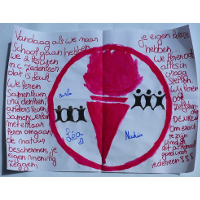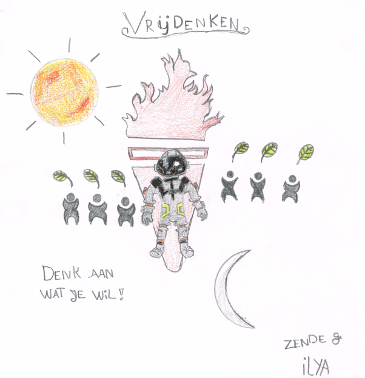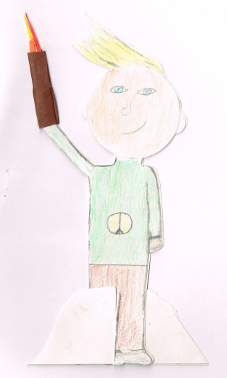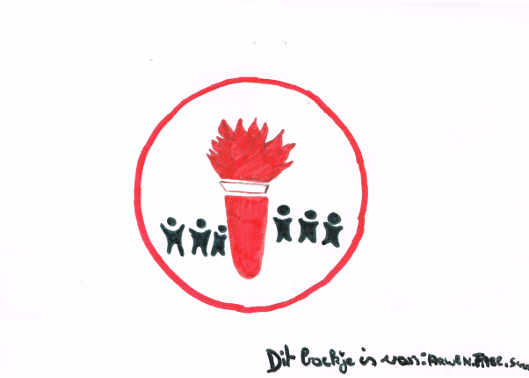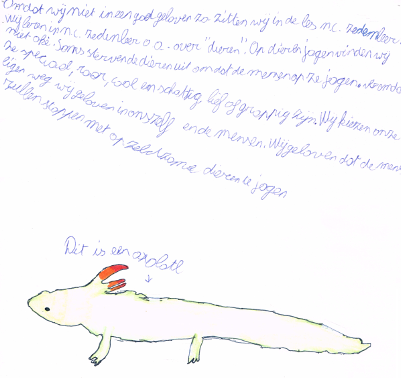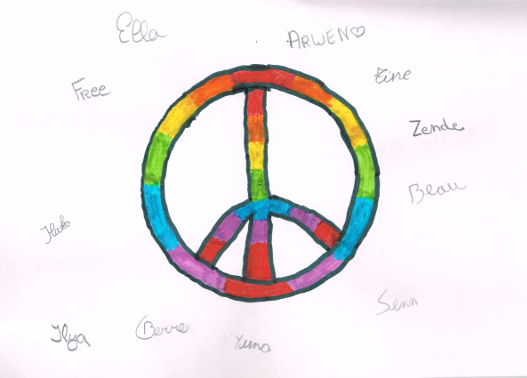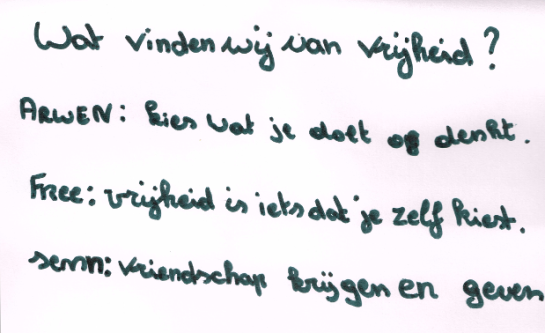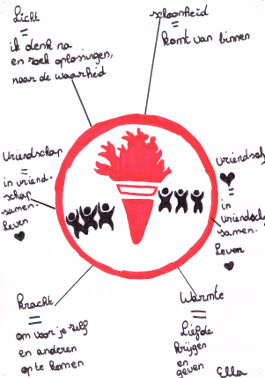
EXHIBITIONS
The pupils of BSGO Markevallei (Kokejane) and of BSGO De Zilverberk (Terjoden) during their Non-Confessional Ethics (NCZ) class, submitted by Tine Roelandt, NCZ teacher
When Belgium came into being in 1830, only one life stance was recognised in education, namely the Roman Catholic religion, because that was the religion of the majority of pupils. For many years, the organisation of religion and ethics classes was a bone of contention between the political parties (the so-called School War). From 1884 onwards, parents could request an exemption for their children to attend religious studies lessons. It was only when the new statutes for secondary education were drawn up in 1924 that an ethics course was set up. Pupils exempted from the religious studies lessons had to take the moral education lessons. These were given by the teachers of literary subjects, the class teacher or the head of the institute. The quality often left much to be desired. In 1948 Richard Van Cauwelaert became the first inspector for the moral education lessons. He made a special effort to change the situation.
With the School Pact Act of 1959, the morals course (“niet-confessionele zedenleer” or “NCZ”) became an elective with a clearly non-confessional profile. NCZ lessons were taught in all years and types of education. Teachers who had taken NCZ classes themselves in secondary education voluntarily took on the teaching of these classes. The NCZ teacher training programme was gradually introduced in mainstream education, at the universities in Ghent and Brussels. With the establishment of the RIBZ (1993) as an autonomous management body for the NCZ lessons, the quality of the lessons became assured.
These works have been made for the preparations of the Lentefeest (a secular rite of passage for 6- and 7-year-olds) and the Feest Vrijzinnige Jeugd (a secular rite of passage for 12-year-olds).
